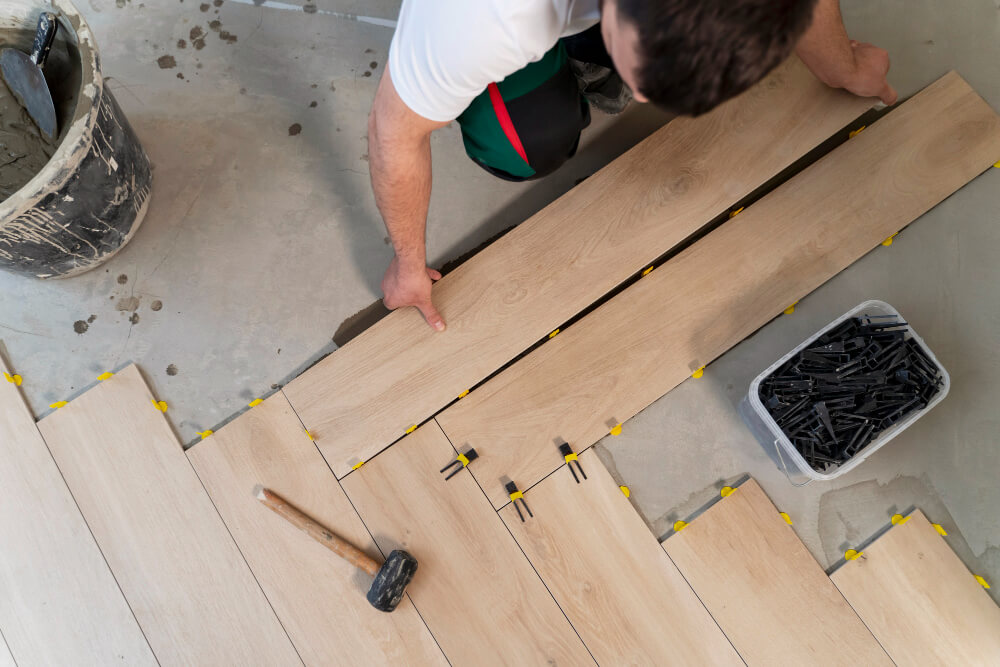Ensuring optimal floor insulation is about comfort and smart energy management, especially in regions like Melbourne, where weather fluctuations can significantly impact home temperatures. Whether you're nestled in the city or its surrounding areas, the significance of well-insulated floors remains paramount. Understanding the common pitfalls and avoiding mistakes in floor insulation projects is key to maintaining a cozy and energy-efficient home. Let's walk through these mistakes and learn how to sidestep them for a cozy, efficient home.
- Inadequate Planning and Preparation
Skipping the planning phase is like building a house without blueprints. Measuring, assessing the area, and understanding the insulation needed are crucial. To avoid this, take your time. Measure accurately and consider the specific needs of your space. Proper planning saves you from buying the wrong materials or ending up short-handed during installation.
- Using Incorrect Insulation Materials
Choosing the wrong floor insulation material is a classic blunder. Each type of flooring (wood, concrete, etc.) may require a different approach. Select materials that suit your floor type and the specific requirements of your insulating area. Quality matters, too. Investing in good materials can make a world of difference in insulation effectiveness.
- Poor Installation Techniques
Even with the best materials, poor installation can render them ineffective. Ensure you follow installation instructions meticulously. Be it batts, rolls, or spray foam, the right technique matters. Avoid leaving gaps or compressing materials, which can compromise their insulating abilities.
- Neglecting Air Sealing and Moisture Control
Insulation isn't a standalone solution. Air sealing and moisture control go hand in hand with proper insulation. Overlooking these aspects can lead to inefficiencies. Seal air leaks and control moisture before insulating. Caulk gaps and use vapour barriers where needed. This ensures that your insulation remains effective over time.
- Ignoring Building Codes and Safety Standards
Safety and legal requirements are crucial. Ignoring local building codes and safety standards can lead to inefficiency and potential hazards. Before starting any project, familiarize yourself with the regulations. Adhering to these standards not only ensures safety but also guarantees the longevity and effectiveness of your insulation.
- Insufficient Maintenance and Upkeep
Insulation isn't a "set it and forget it" deal. Regular maintenance is key for long-term effectiveness. Inspect your insulation periodically. Replace damaged insulation, address new gaps, and ensure everything is in order. Maintaining your insulation ensures it works efficiently, saving you energy and money in the long run.
- Incorrect R-Value or Thickness
Another mistake is miscalculating the R-value or thickness needed for insulation. Different areas or climates require different levels of insulation. Before purchasing materials, understand the R-value needed for your region and space. Insulating too much or too little can impact energy efficiency.
- Ignoring Unique Challenges of Older Homes
Older homes may have unique challenges. Inadequate or outdated underfloor insulation, structural issues, or different construction materials might require a specialized approach. Investigate and tailor your insulation methods to suit the specific needs of older homes for optimal efficiency.
- Overlooking HVAC Considerations
Insulating floors can impact HVAC systems. Forgetting to assess the impact of insulation on heating, ventilation, and air conditioning systems can lead to imbalances or inefficiencies. Consider how your insulation affects the overall HVAC functionality to ensure a well-balanced and efficient home climate.
- Failing to Consider Future Renovations
When insulating, it's important to consider potential future renovations. Blocking access to wiring, plumbing, or other systems might create problems down the line. Plan your insulation to allow easy access for future maintenance or upgrades.
Final Thoughts:
Avoiding these common floor insulation mistakes isn't rocket science, but it requires attention to detail and patience. Remember, it's okay to seek professional help if you're uncertain. Experts can guide you through the process and ensure a job well done. A properly insulated home saves you money and contributes to a more sustainable lifestyle. So, take the time, do it right, and enjoy the benefits of a snug and efficient home.
Also Read How To Improve Floors Safety









 Erika Rhein, the contributing author and the professional blogger by profession. With years of experience, I now focus on writing blogs on varied niches. Being a research enthusiast, I like to provide my readers with the useful and informative articles on the different topics they are looking for. I aim to create a difference through my writing.
Erika Rhein, the contributing author and the professional blogger by profession. With years of experience, I now focus on writing blogs on varied niches. Being a research enthusiast, I like to provide my readers with the useful and informative articles on the different topics they are looking for. I aim to create a difference through my writing.
0 Comments